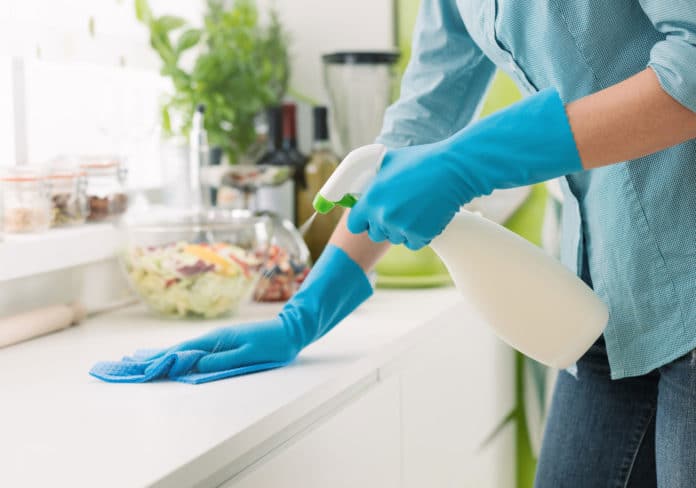The prevalence of childhood asthma has steadily increased over the past several decades and is now a leading cause of childhood chronic disease. The first months of life are critical for the development of the immune and respiratory systems.
Most of the evidence that chronic low-level exposure to the irritants in cleaning products causes chronic inflammation triggers asthma symptoms and worsens asthma control comes from domestic and occupational studies in adult populations.
A new study shedding light on this found that young infants (birth to three months) living in homes where household cleaning products were used frequently were more likely to develop childhood wheeze and asthma by three years of age.
Study’s lead researcher, Dr. Tim Takaro, a professor and clinician-scientist in the Faculty of Health Sciences at Simon Fraser University (SFU), said, “Most of the available evidence linking asthma to the use of cleaning products comes from research in adults. Our study looked at infants, who typically spend 80-90% of their time indoors and are especially vulnerable to chemical exposures through the lungs and skin due to their higher respiration rates and regular contact with household surfaces.”
For the study, scientists gathered data from an ongoing investigation called CHILD (Canadian Healthy Infant Longitudinal Development) that is following over 3,400 children from pregnancy through childhood. However, the new research only focused on around 2,000 subjects in the study.
Parents were asked to report their frequency using 26 different common household cleaning products during their child’s first three months of life. These products included dishwashing detergents, surface sprays, and air fresheners. Follow-up occurred when the child was around three years old, to evaluate the development of asthma or wheezing.
Dr. Takaro said, “We also found that at age three, the relationship between product exposure and respiratory problems was much stronger in girls than boys. This is an interesting finding that requires more research to understand better male versus female biological responses to inflammatory exposures in early life.”
Jaclyn Parks, a graduate student in the Faculty of Health Sciences at SFU said, “The risks of recurrent wheeze and asthma were notably higher in homes with frequent use of certain products, such as liquid or solid air fresheners, plug-in deodorizers, dusting sprays, antimicrobial hand sanitizers, and oven cleaners. It may be important for people to consider removing scented spray cleaning products from their cleaning routine. We believe that the smell of a healthy home is no smell at all.”
“The big takeaway from this study is that the first few months of life are critical for the development of a baby’s immune and respiratory systems. By identifying hazardous exposures during infancy, preventive measures can be taken to reduce childhood asthma and subsequent allergy risk potentially.”
The study published in the Canadian Medical Association Journal.
